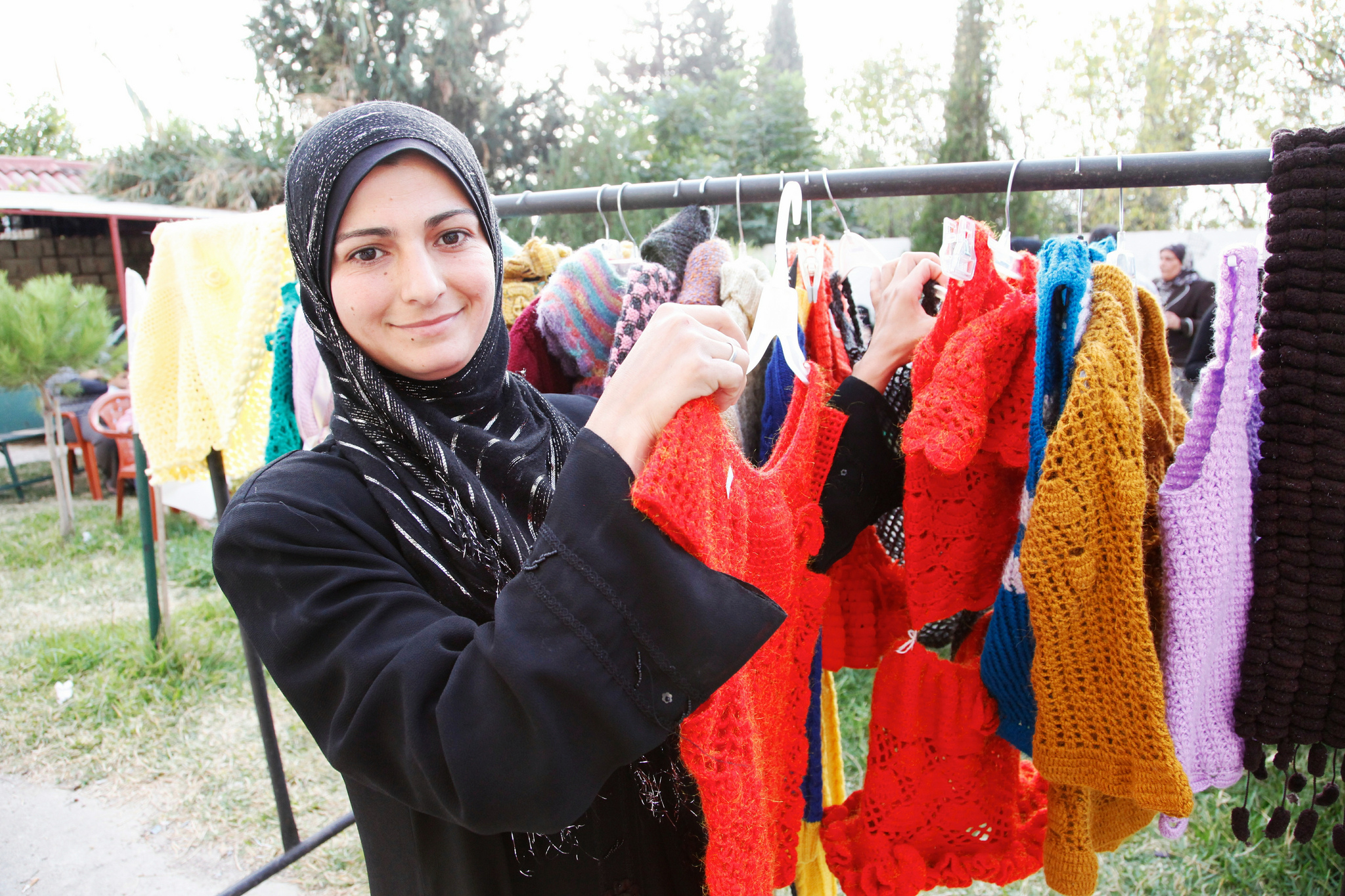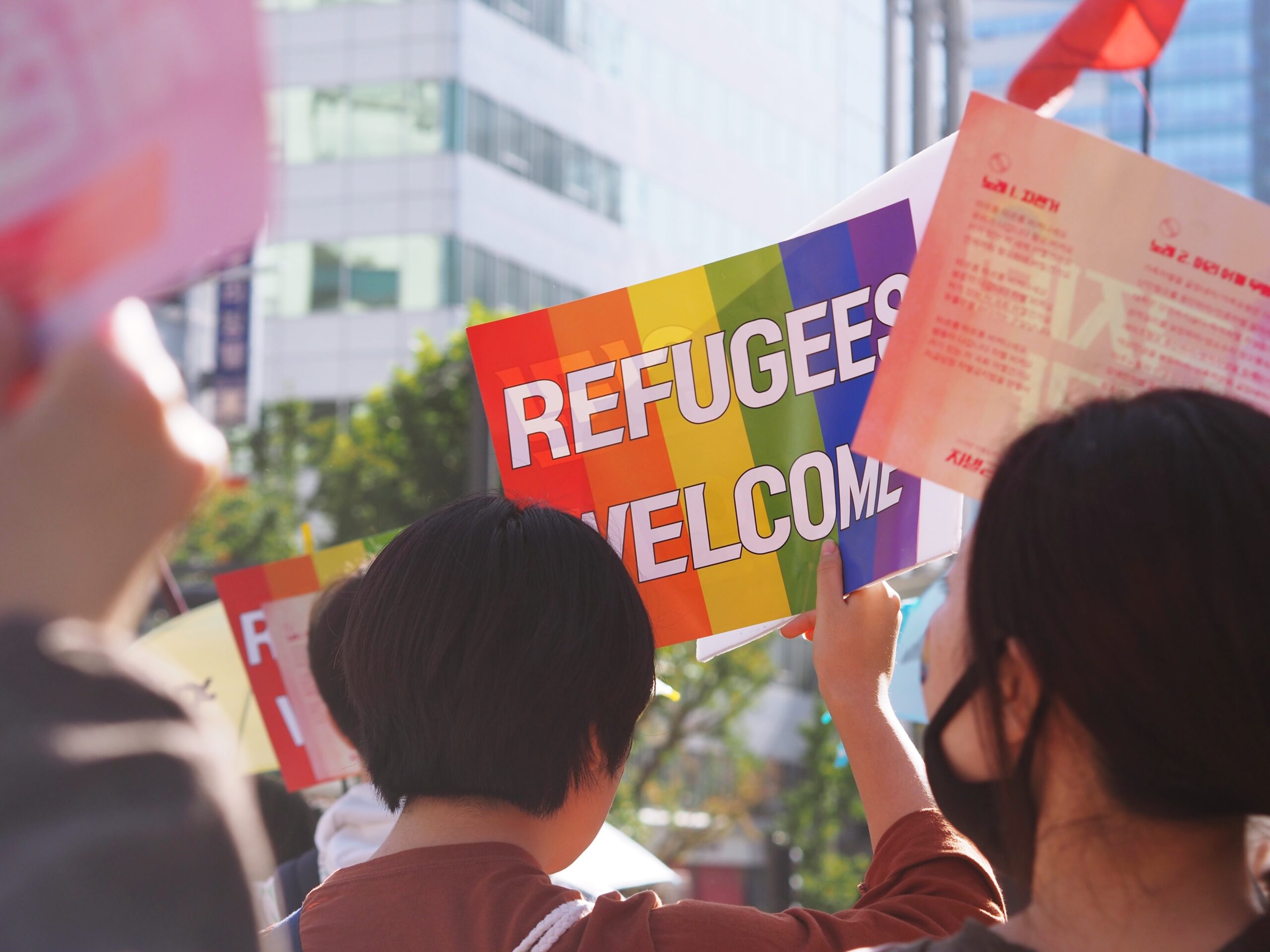CDP’s Disaster Recovery Fund addresses refugee crises in the United States
At the end of 2021, we awarded the final round of domestic grants from the Center for Disaster Philanthropy’s (CDP) Disaster Recovery Fund. The four grants totaled $600,000. Undesignated donations to the fund enabled us to support recovery from the complex humanitarian emergency caused by the immigration crisis at the southern border (particularly with Haitian migrants […]
At the end of 2021, we awarded the final round of domestic grants from the Center for Disaster Philanthropy’s (CDP) Disaster Recovery Fund. The four grants totaled $600,000.
Undesignated donations to the fund enabled us to support recovery from the complex humanitarian emergency caused by the immigration crisis at the southern border (particularly with Haitian migrants and others from Central and South American countries in crisis) and the resettlement of refugees from Afghanistan following the end of U.S. engagement there. Most of the funding provided by CDP addresses the extensive needs along the U.S.-Mexico border and the racial, legal and procedural inequities we witness there.
Though this is the first time CDP has funded in this space in the U.S., complex humanitarian crises have long been a focus of our work internationally. Conversations with long-term grantee partners, fellow funders and other community leaders, as well as data and investigative reporting from the frontlines, lead us to the conclusion that we must act now to support the fair and humane treatment of immigrants and migrants seeking refuge here. Our commitment to racial and intersectional equity throughout our programmatic focus areas dictated our funding focus here.
Grants to address U.S. humanitarian crises
Black Alliance for Just Immigration (BAJI) – $200,000 to address the needs of Black migrants at the U.S.-Mexico border. Through this funding, BAJI plans to increase culturally competent resources and create a resource guide in multiple languages for migrants to access. Plans also include expanding education, advocacy and organizing to inform policy change in support of this population, and providing additional translation services to serve migrants at the border. Finally, with funding from CDP, BAJI will hire a mutual aid associate to help coordinate and build their capacity for meeting the basic needs of those seeking refuge at the border and beyond.
Transgender Law Center (TLC) – $150,000 for their “Border Butterflies Project.” Border Butterflies is a coalition responding to the significant gap in resources for LGBTQ+ migrants both at the border and within the U.S. Through funding, TLC will provide a spectrum of needed legal services, including:
- Representing clients in credible fear interviews.
- Tracking individuals as they enter U.S. Customs and Border Protection (CBP) and Immigration and Customs Enforcement (ICE) custody.
- Advocating for release from ICE and CBP custody through a variety of legal tactics.
- Supporting and assisting them while in detention.
- Representing or finding representation for immigration hearings while in detention.
- Continuously advocating for release.
TLC also represents people in front of immigration judges, provides legal support with asylum applications and applications for work authorization, and connects clients to legal representation if TLC cannot take their case. It supports clients with change of address and change of venue requests, and engages in expert identification, affidavit drafting and brief writing. It also supports pro-bono attorneys who have not yet worked with LGBT asylum seekers with mentorship, sample legal documents and an overall support system when legal questions arise.
Funding also allows TLC to provide or facilitate connection to critical humanitarian services, including food, housing, mental health services, medical care, clothing and other necessities. When individuals are released from detention, TLC arranges travel to sponsor homes and provides post-release assistance with accommodation, cell phones, food and clothing before arrival at sponsors’ homes. TLC also engages in community building, mobilization, storytelling and policy advocacy in response to the systemic challenges clients encounter.
UndocuBlack Network – $100,000 to build capacity to address the needs of the moment for Black immigrants while also laying the groundwork for long-term change. The UndocuBlack Network collaborates with groups on the ground and utilizes policy expertise to help provide relief for asylum seekers who need it now while pushing for longer-term, systemic change for Black immigrants. Specifically, grant funds defray the costs for rapid response efforts, build the groundwork to prepare for future injustice and work to ensure this never happens again.
Since the beginning of the latest crisis, UndocuBlack Network led a sign-on letter that secured signatures from nearly 300 organizations to demand dignity for asylum seekers at the southern border. They also filed a DHS civil rights complaint requesting that the office investigate the alleged civil and human rights abuses occurring in Del Rio, Texas, and demand that all expulsions end.
UndocuBlack Co-Director Patrice Lawrence published a widely read op-ed with CNN decrying the situation in Haiti, and UndocuBlack leaders have served as on-background and on-the-record resources to the media. They work in a coalition to educate Congressional leaders and others about the immediate and long-term needs of Black immigrants. They also work with Haitian Bridge Alliance and the larger asylum advocacy community to shift conversations about welcoming policies, especially for Black immigrant communities.
KIND (Kids in Need of Defense) – $150,000 to leverage KIND’s work with Afghan unaccompanied children to identify best practices and novel policy approaches for promoting family unity and safe reunifications for unaccompanied children. Through trainings, stakeholder engagements and pilot projects, KIND hopes to share lessons learned during emergency response to formalize processes that can better serve children seeking protection wherever and whenever they are in need, including children arriving at the U.S. Southern border.
Specifically, funding will support regular convenings and engagements with other stakeholder organizations and federal government agencies to develop border pilot projects designed to prevent family separations for unaccompanied children at the U.S.-Mexico border. KIND will develop training materials, including webinars, to share its experience serving Afghan unaccompanied children with the legal services community and highlight successes and barriers in family reunification that can inform direct services work and international policy recommendations and program design and implementation at the border.
Finally, KIND will build on its reunification work at the border and with Afghan unaccompanied children to convene domestic and international experts to document best practices that will be turned into public recommendations, more robust networks for information-sharing, legal assistance and greater public awareness of the unique needs of unaccompanied and separated children in the context of forced migration and refugee assistance.
The dedication of each of these organizations to the cause energizes me and offers hope. I’m grateful CDP can affect real systemic change in the face of these crises of inequity.
More like this

Susan F. Martin: A Pioneer in U.S. Immigration Reform


